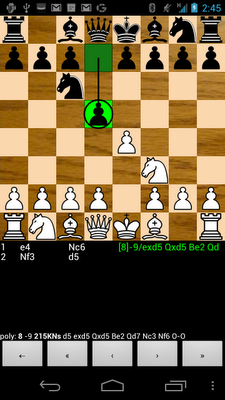Subsequent to that one post, three people address me directly with an unprovoked question, and some ask follow-up questions. Answering those you apparently consider 'spamming'. Well, that is another difference between us, then: I would call it 'common courtesy'.Daniel Mehrmann wrote:For myself the word "stuff" has no negative meaning. It's just a definition about all things in the case of X-/Winboard (like i learned it on school).hgm wrote:And what is this silly notion about "my stuff"?
You switching the "focus" on the fly now. We, namely you and me, have a "part thread" debate about Android and polyglot right now and nothing more. This is one of your nice "tricks".Someone is asking for help, and I am trying to give him some useful advice.
BTW: "Help" is if you would do one post and explain pros about your wb protocol. What you did and currently do is responding on any message in this topic where people write pro stuff for UCI or if they simply tell they like or prefer UCI. This is no help, it's just spamming.
Or perhaps you think I should only answer such questions after asking money for it...
The question whether running an adapter through Polyglot would work on Android only comes up because it could be an option for the original poster, who wants to run UCI engines on its GUI. It is of zero importance to me. All discussion about it is only for the benefit of the OP.We ? Well, this offer is a special one only for you of course and i'm sure you know that. But "playing" with the community voice, namely "we" is just another trick by yourself.OK, so you are only prepared to give 'help' if you are payed. We took note of that. So you can butt out now.
However, this talk make no sense at all (as expected).
End of story.[/u]
So to associate that 'stuff' in any way with me, is... well, weird.
To suggest that I should pay you to help the OP is of course insane...
Get it now?


